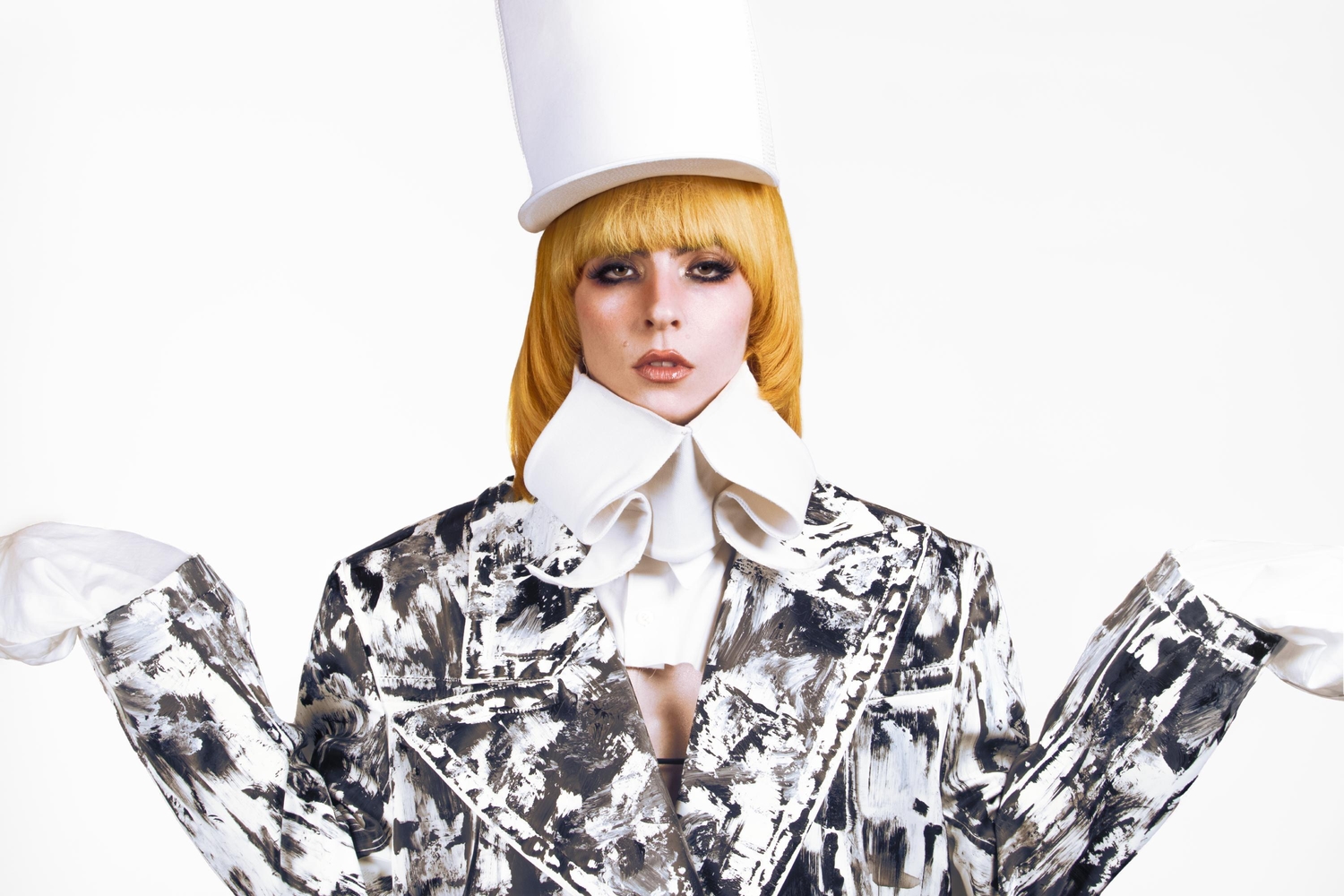
Dorian Electra: Star Treatment
What’s the price of fame, asks hyperpop pioneer Dorian Electra? According to third album ‘Fanfare’, it might just be a five dollar Minion with a strap-on.
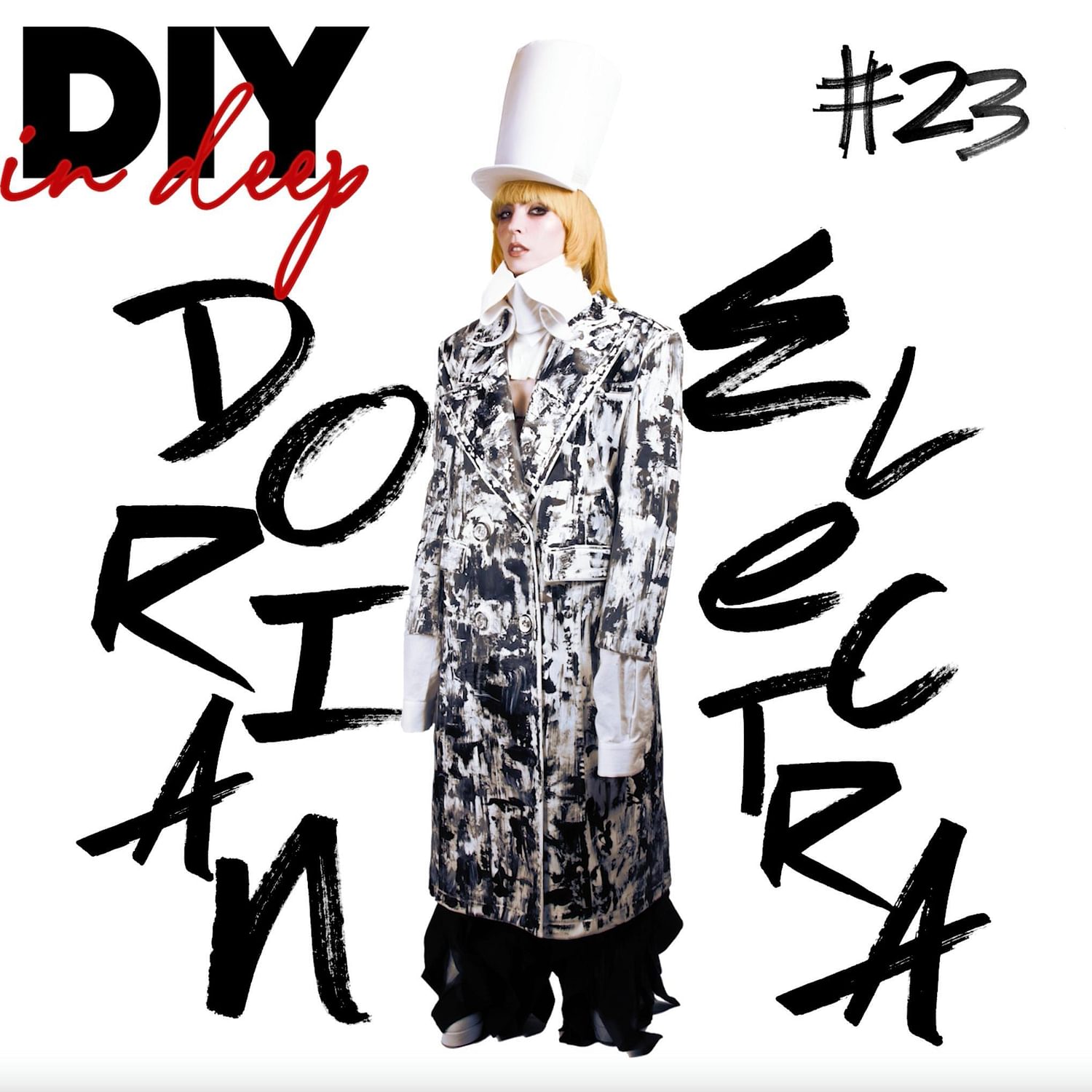
Somewhere in Houston, Texas, 14-year-old Dorian Electra was doing what any teenager was doing on the Internet circa 2006: ignoring stranger danger and making virtual pals. “I was really obsessed with The Horrors,” they remember with a smile, “and my first experience of being online was curating my presence within that fandom community. That’s where I really learned about a personal brand, as cringe and millennial as it is to say.”
It wasn’t just friends that Electra made, however. The band inspired them to make their own music videos set to the music of The Horrors, which they even managed to hand to the band at a gig in LA. Electra was living the life of a stan well before the term even officially entered the dictionary, but they didn’t know that, a decade later, they’d be collaborating with Horrors frontman Faris Badwan and gaining a few stans of their own. Now, those stans are the subject of the 31-year-old’s newest album: ‘Fanfare’.
There are plenty of hyperpop figures nowadays, but Electra’s approach has been a unique one
of spreading ‘popaganda’. Briefly flirting with songs about libertarianism in 2010 (which they’ve since denounced), Electra then started writing histories of the clitoris and vibrators for Refinery29, set to pop music. They would later break out with two studio albums, 2019’s ‘Flamboyant’ and 2020’s ‘My Agenda’; ‘Flamboyant’ took on masculine gender stereotypes and flipped them into relatable, parodic tropes, whilst ‘My Agenda’ documented a fictional conspiracy theorist watching their country fall to “the gay agenda”.
To see an artist approach such nuanced, contemporary issues and distil them into its most entertaining elements is already admirable, but there was an extra layer to Electra’s growing fanbase. The hyperpop scene has partly become defined by its queer online communities that champion fellow queer artists, but as a genderfluid person, Electra represented a diminutive niche in an already marginalised community. genderfluid identity at the time of their debut releases was vastly misunderstood, and Electra is quick to notice how much times have changed. “I don’t like to make this the centre of the conversation for my music, but 2018 to 2023? Huge shifts!” they confirm. “You could Google a list of queer artists in 2017, and it’d be Troye Sivan, Cakes da Killa, Kim Petras. Now it’s everyone, which is amazing.”
It’s a shifting world that they’re releasing this month’s third LP into then, however Electra was also negotiating some personal shifts of their own. After releasing ‘My Agenda’, going through relationship issues, and dealing with a vocal cord injury, they were faced with an existential crisis. “What does my life look like now?” they recall. “What motivates me? What makes me happy? What do I want to write about?”
Electra’s answer is delivered in the breathless, verbose manner characteristic of their ever-curious personality: “Fame, fandom, the Internet, the cult of celebrity, the industrial production of celebrity under capitalism and how fandom is the new religion.”
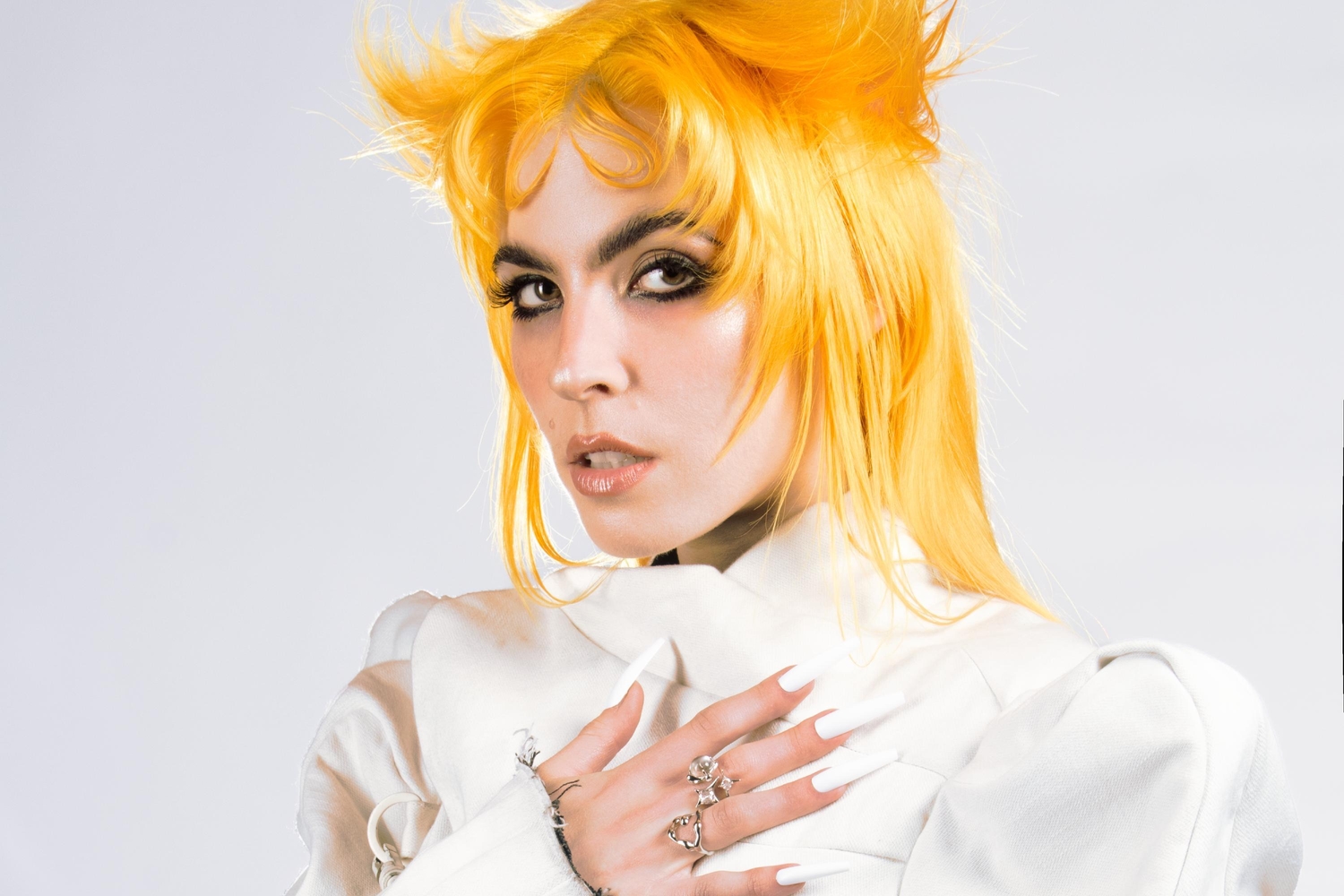
To dig further into the subject, Electra turned to Kaitlyn Tiffany’s book Everything I Need, I Get From You: a journalist-cum-1D-stan account of the importance of fandom. “She felt like she was making a difference and she was fighting for a just cause. Who doesn't want to feel like they’re a part of something like that?” Electra reasons. “It might be getting an album to Number One, or doing something to their competitor so they weren't in the charts. Human beings are wired for meaning and community, but community is not something that capitalism is into.”
One of the resounding emotions present across ‘Fanfare’ is the increasing absurdity of capitalistic greed, something that Electra illustrates in ‘Manmade Horrors’ and its litany of eye-scouring imagery: “You may live to see a Minion with a strap-on / Live to see a slutty Mao Zedong thong”. Technically it wasn’t a strap-on, Electra clarifies. “It was a crochet minion with a sock for people with penises, you could put the penis into the nose,” they laugh.
What concerned them was that such demand for irritating, chipmunk-voiced marketing shills was becoming increasingly inescapable. “There’s a factory somewhere in the world that is probably using toxic chemicals to produce this one-off item, and somebody is being exploited for the purpose of a joke that you can purchase for $5 and get delivered to your house in two days or less,” they argue. “It’ll be in the back of your closet, and eventually in a landfill. But the reaction that I see so many people having around me is that I can't help but have to laugh at it.”
If Rule 34 of the internet dictates ‘if it exists, there is porn of it’, then Electra has discovered another rule: ‘if it exists, there is a way to profit from it’. The ability to capitalise off anything is taken to deliriously creative heights on ‘Sodom and Gomorrah’. Though it is about “anal sex, basically”, the music video questions what it would be like if those cities became tourist attractions, even featuring its own Sodom and Gomorrah merch.
“I got really obsessed with souvenir shops when I was on tour last year,” Electra explains. “I was visiting Italy, thinking about how you can buy a T-shirt that has Roman emperors on it. That was literally a murderous dictator, but when it's separated by enough time in history, it just becomes yet another thing to make money off of. It's so funny and bizarre! I’ve always been fascinated with that, especially the way that mediaeval stuff is so romanticised now aesthetically, but that shit was horrible. Mad people were being oppressed everywhere.”
Electra has long explored medievalism in their music, but they also found it an apt metaphor to describe the mechanisms of Internet anonymity on ‘anon’. “What people will say behind an anime avatar on Twitter is radically different from something they would say to somebody face to face,” they deadpan. “On the one hand, it's empowered people to develop queer identities online before they ever felt comfortable coming out to their family – that should be celebrated. But by the same token, you can also explore dark and hateful identities. People feel powerless in their own lives because they're politically and economically disenfranchised and turn to these platforms online to exercise what they feel is some sort of power.
“You give people that much power and you're looking at mob rule,” they conclude. “It just feels very mediaeval to me in a lot of ways, and the anonymity fuels it because it's really a lack of accountability for what you say and do online.”
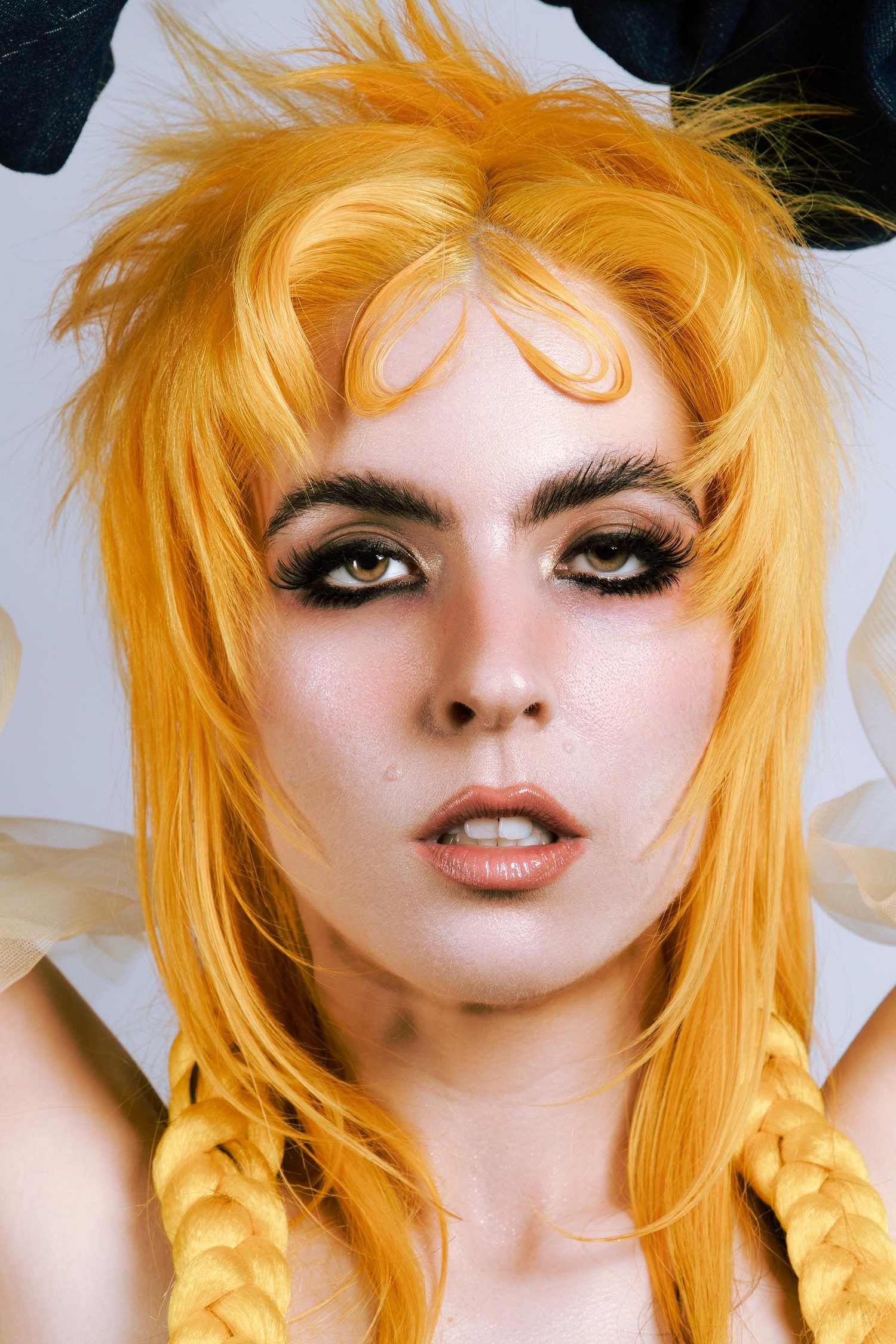
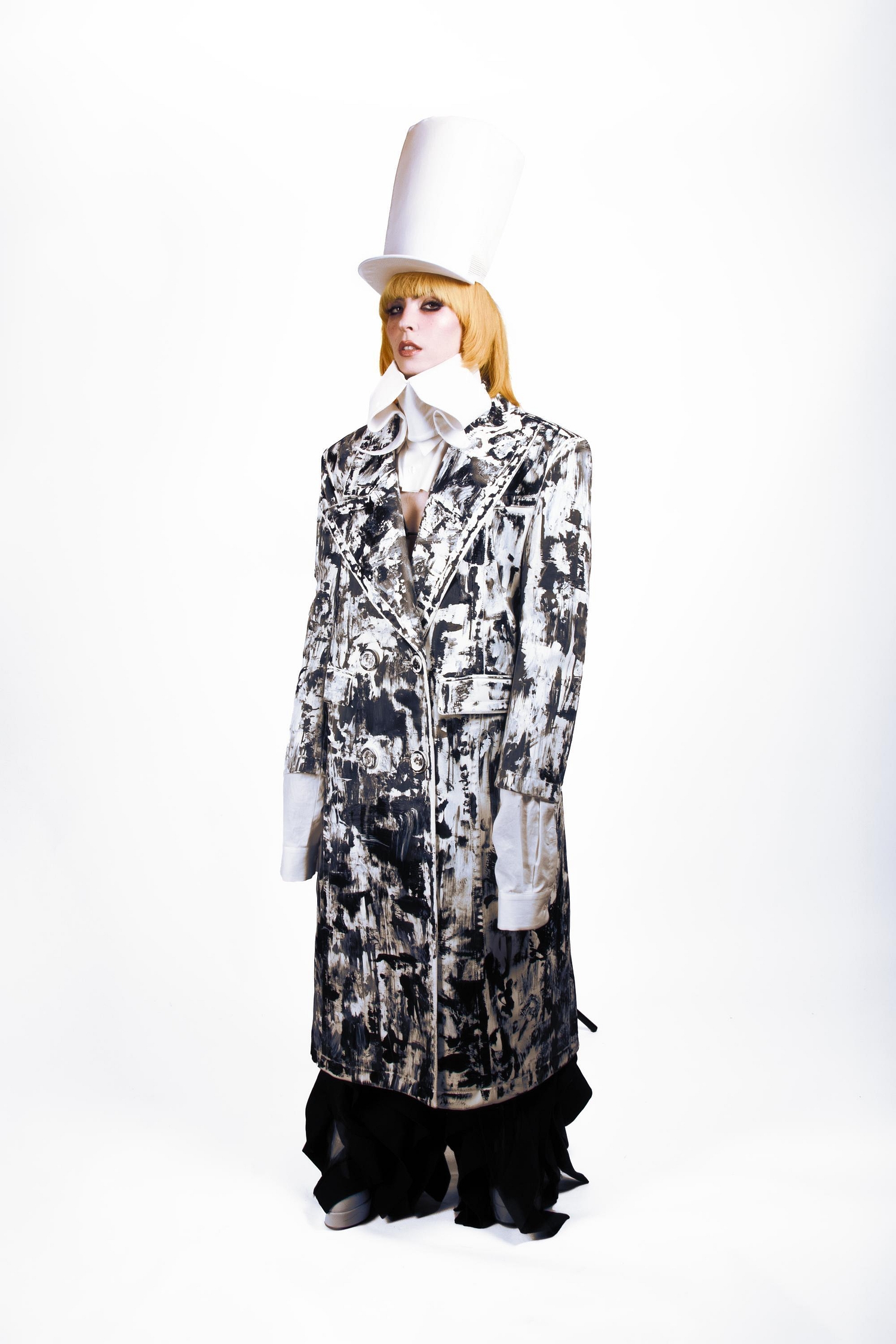
‘Fanfare’ explores the beauty and dangers of fandom, but it also turns its eye onto the idols themselves - a trope Electra exaggerates and breaks down with glee. Take the ‘Fanfare’ cover: Electra poses chin high and chest out in rich, grand colours. Kind of like... a dictator. “The popstar dictator is such a fun trope to play with,” they grin. They cite “Michael Jackson, Janet Jackson, Madonna, Britney, Gaga” as some of the popstar dictator’s best practitioners. They also turned to childhood favourite David Bowie to structure the album; “I sort of think about this record like the rise and fall of a rock star,” Electra notes.
Their depiction of the egotistic tyrant culminates in what they call “the most emotional song to write” on the record. ‘Yes Men’ is a five-minute “mini rock opera” that sees Electra connect to their childhood love of rock music that inspired much of the album; “I'm really getting into the theatricality of rock music in a way that I was so inspired by growing up,” they grin. ‘Yes Men’ dramatises the “sad Napoleon figure” by interspersing maniacal, forced laughter between righteously epic guitar riffs and punishing hardcore gabber breakdowns. It is Dorian Electra to the D, taking two seemingly incongruent musical ideas, throwing it at a wall, and miraculously making it stick.
The track was tellingly written at a time when Electra was grappling with the tricky dynamics of making friends as an artist, when the people you most commonly associate with are fellow collaborators, stylists, make-up artists and other people with a vested interest in your career. “It was at a time when you're surrounded by people that you work with, who are the people that you end up vibing with,” they explain. “Then you're like, am I surrounding myself with people that are enabling me? Artists that go on tour, their friends are people that are on their payroll; there's a power dynamic that you can't ignore. I think a lot of artists struggle with that - not all, obviously, but a lot of people can relate to that.”
In fact, it’s not even just celebrities that can relate to this; Electra has observed similar tendencies in ‘cut-off culture’, where you’re encouraged to “cut toxic people out of your life”. “Anyone that confronts you, anyone that challenges you in some way is toxic and needs to be obliterated from your social sphere. The whole culture of self-care and self-love, some of it's really good and beautiful, but some of it is this toxic individuality that is turning us all into lonely, bullying yes men."
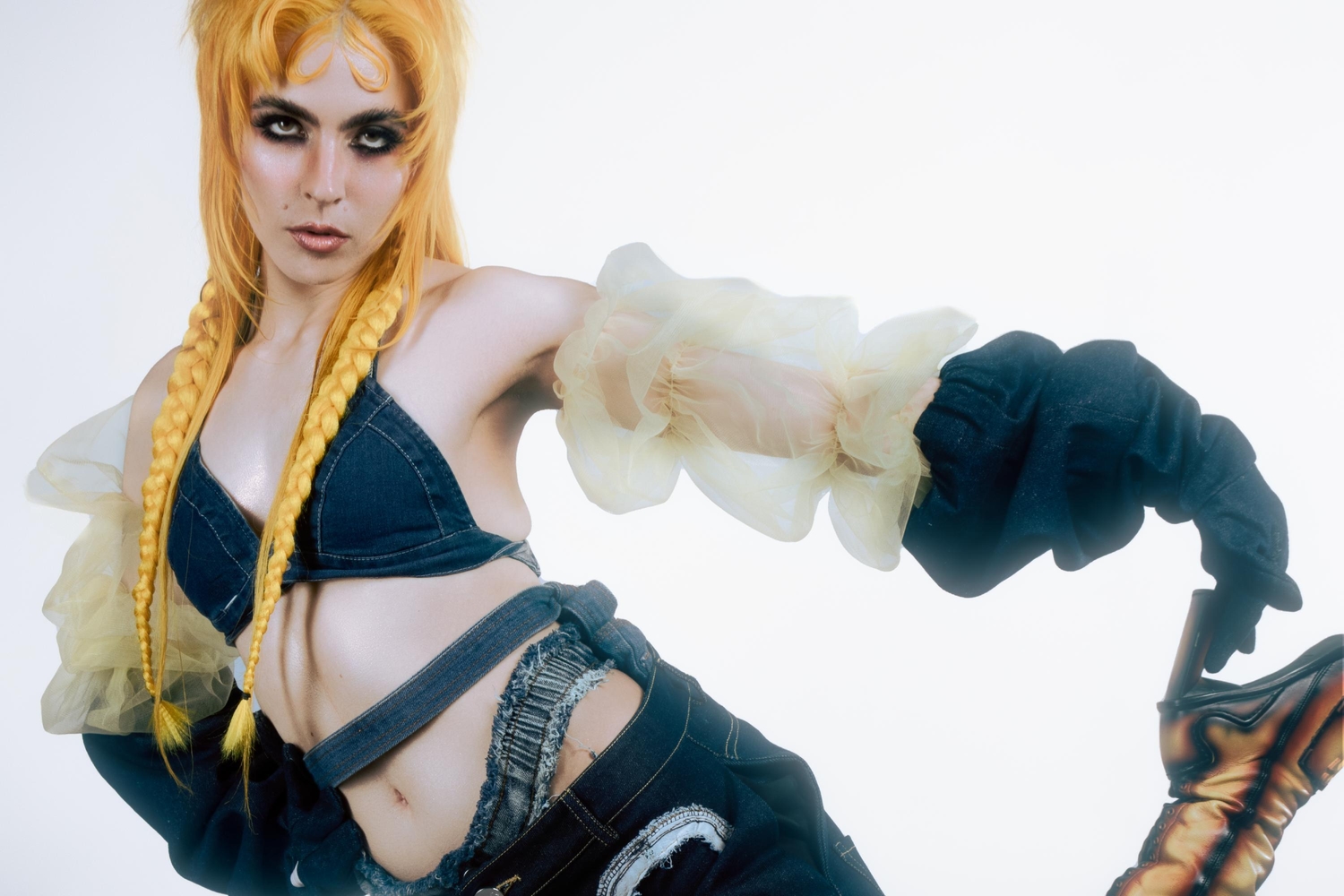
It’s not all modern trauma across Electra’s third, however, and on the likes of ‘Puppet’ their mission of writing gender-neutral horny anthems continues. It might seem out of place on the record initially, but they view these tracks as in-character songs, sort of like David Bowie’s ‘Ziggy Stardust’. ‘Puppet’ is a plucky baroque cut where Dictator Dorian coyly demands: “Shove it, Miss Piggy squeal like Muppet / Fuck it, fit you like a glove like puppet.”
“I had never heard a song about having sex with your hand in this genderless way that could be interpreted in so many different ways that’s going to expand my experience of sexuality with people of different genders,” they say. “It's something that I can feel very dysphoric about in terms of gender identity and sexuality.
”Over its development, ‘Fanfare’ and its erotic odes became more than world-building exercises. As a self-described “twinky little guy” feeling “femme”, the tracks played a huge part in developing Electra’s own confidence in their gender identity. “It was something that I had come to on my own terms,” they admit. “I used to always struggle with feminine sexuality; it felt forced on me by society. I needed to figure out how to make it feel comfortable for me, and writing these songs has been really amazing for that.”
Indeed, the experience has been so liberating for Electra that they’ve retired their signature pencil moustache. “It was a very tongue-in-cheek nod; I can do eyeliner here in the same shape, but if I do it here, it means something totally different about my gender identity,” explains Electra. “But now I feel I have more freedom to express myself and I don’t need to use it as a crutch. I could totally see myself doing it as a part of a makeup look in the future for a shoot, but I feel I can express it in other ways now and I feel confident in that.”
For someone whose job depends on social media and who is embroiled in a scene so closely localised online, how has Electra managed to cope with the emotional demands that these often parasocial relationships bring? “I've had relationships through family members where you have to emotionally detach because of the way you get hurt,” they explain. “I had to learn that the hard way as a kid, and I honestly draw on that. I don't get too close, but I can enjoy the positives on a superficial level because it can be very fickle. The thing with stan culture is that as intensely as a person can love, they can hate. You cannot have one without the other.”
This volatile relationship, they admit, does create a unique pressure on them as a representative of the genderfluid community. ‘Fanfare’ and its narrative conclusion is bleak, ending with the question: “Why do I wanna be a star?” Electra’s answer, however, couldn’t be more different. “I'm just trying to figure things out myself as well, I don't have it all figured out,” they say. “But I'm really grateful too; if I can be meaningful in somebody's life, that makes me happy.”
‘Fanfare’ is out on 6th October.
Styling: Luca Wowczyna
Hair: Gregg Lennon Jr
Make-up: Nick Lennon
Fashion: Jordan Arthur Smith, ANИAKIKI, NOVA, Poly Global Advisory & No Such Agency.